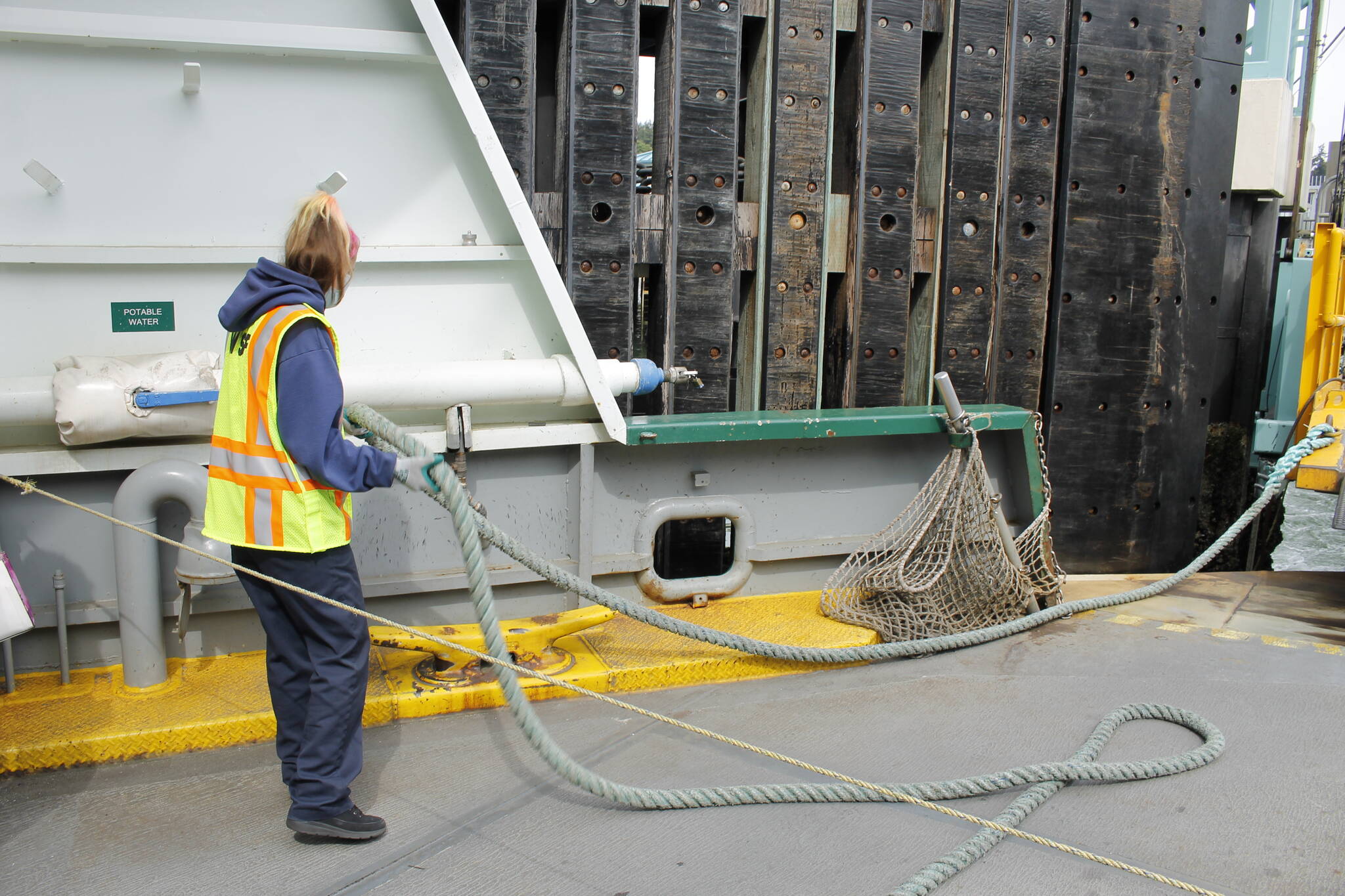In what will likely come as no surprise to Whidbey Islanders at this point, it will be some time before the Coupeville-Port Townsend ferry route is running two boats again.
Washington State Ferries officials announced during a public meeting held last week that the route won’t see full service restored until next spring. It is considered to be the lowest priority in the state, just above the Anacortes-Sidney B.C. route that hasn’t operated since before the COVID-19 pandemic.
This means that only one ferry will traverse the water between Central Whidbey and Port Townsend this summer.
As detailed by a ferry system report released earlier this year, a route will first operate on a reduced schedule referred to as “alternate service.” Service levels will be increased on a trial basis if it is determined to have the appropriate level of crewing and vessel resources. A route is considered to be “restored” if it operates at a 95% reliability rate over three weeks.
The Mukilteo-Clinton route, ranked third in the system, attained full restoration in May. Two boats regularly running the route has meant smoother sailing for passengers. Earlier this month, the 144-car Suquamish rejoined the route. During the June 14 meeting, ferry officials said the other 144-car boat, the Tokitae, is expected to return in the beginning of July.
The phased approach of restoring services to routes is in response to a system-wide staffing shortage, which has resulted in mass cancellations of sailings. In addition, current crew have either been out sick with COVID or have requested relief in order to take care of family members who have caught the virus.
The ferry system is getting closer to meeting target staffing levels for all positions, but still falls short in the wake of what could turn out to be a very busy summer.
During last week’s public meeting, ferry officials explained that they are trying to rehire retired captains during the summer. In addition to COVID, the ferry system has also had to cope with a wave of retirements as the Baby Boomer population ages.
The system is also composed of aging vessels, which routinely require repairs. The first hybrid electric vessel, which has yet to be built, is slated to run the Mukilteo-Clinton route. But it will still be a few years until passengers can look forward to taking that boat – construction is estimated to begin in 2023 and wrap up by 2027.
Very little of the meeting’s focus was on the Coupeville-Port Townsend route, which continues to be serviced by the 64-car Salish. During the hour-and-a-half question-and-answer period, not one question was related to the route.
A recording of the two public ferry meetings can be found on the “Community participation” page of the Washington State Ferries website, wsdot.wa.gov/travel/washington-state-ferries.
According to Coupeville Mayor Molly Hughes, even with ferry service slashed in half, tourism has not been majorly impacted. The town’s sales tax revenue is increasing and full lodging establishments and long waits at restaurants are indicators that tourists have not been deterred from visiting Coupeville.
Reduced and unpredictable ferry service on the Coupeville-Port Townsend ferry route has become something of a norm now, although Hughes did acknowledge it affects the quality of life for people who live on both sides of the route.
“I’m more concerned about the long-term plan of when new ferries will be built and how long that will take to get done, how long it will take to have a positive net increase of boats that will be available,” Hughes said.



